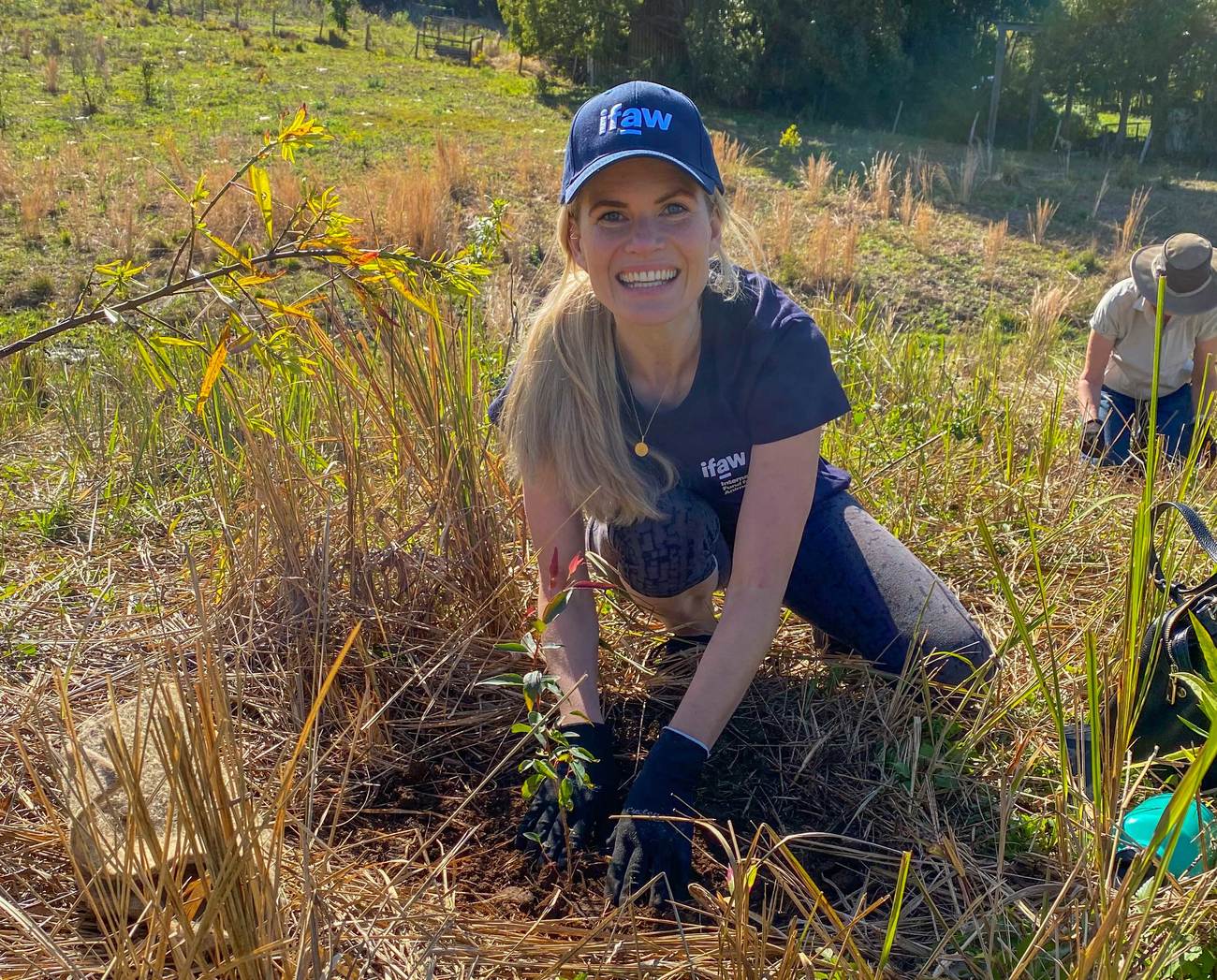Bonnie Sveen
replacing eco-anxiety and despair with connectedness
replacing eco-anxiety and despair with connectedness

Looking at the trajectory of natural disasters fuelled by climate change, it is nearly impossible to avoid feelings of eco-anxiety and despair. One way we can step back into our power though is through connection and exploring potential solutions.
trees for koalas
I was recently privileged to play a small part alongside IFAW (International Fund for Animal Welfare) and Bangalow Koalas, which have been working closely to restore a wildlife corridor. Together, with the help of a local bush regeneration crew and lots of enthusiastic volunteers, they planted 6,000 trees over a few weekends for much-needed koala habitat.
Looking at the previous year’s planting efforts, with trees further along in their growth and already showing signs of koala activity, I couldn’t help but be filled with hope and positivity. There were retirees and farmers who had seen the devastation and wanted to help koalas in disaster-affected areas, and school kids who had travelled hours to do something they knew would be fun and help restore the earth and biosphere. We were all there with the shared purpose of wanting our native animals to have the best chance to survive—and thrive—in the wild.
There is no singular answer or cure to the extinction crisis. This complex problem requires a full-circle approach and IFAW’s projects hit the nail on the head. IFAW’s local and global work involves rescue, rehabilitation, release and restoration (e.g., tree planting).
wildlife rescue
Here in Tasmania, we regrettably rank number one for the worst wildlife roadkill tolls in the world. Clearing dead animals off the road is a sad but regular part of our daily lives. We don’t do it for the aesthetics of a clean road but rather to avoid more needless deaths of scavenger animals such as Tasmanian devils, quolls and birds of prey (most of which are endangered!)
The best step this wildlife lover ever took since moving to the country was participating in the wildlife rescue course led by Bonorong Wildlife Sanctuary. Knowing what to do when you come across an injured animal is important not only for the injured party; it also makes you popular among your neighbours. Such training and hands-on practice is certainly an example of the aphorism “knowledge is power.” If the creature involved requires medical care, the IFAW vets at the state’s only wildlife hospital (sponsored by IFAW) at Bonorong will do all they can to ensure the animal has the best chance of survival and release.
a moral obligation
If you can’t tolerate the feelings evoked by the harm we’re causing the planet, maybe you’re not meant to. Your emotional investment could be fuelling the next steps of your impactful life. These next steps may include volunteering, campaigning, influencing your workplace or donating to wildlife and land management groups.
I believe we’re each morally obligated to do our part to care for the Earth that sustains us. I think a future where humans live more harmoniously with the land begins with a collective shift in responsibility, where each of us puts time and energy into cleaning up or caring for our local environment. We should do it for our own sake, and for the sake of the creatures, we coexist with. I see volunteer work becoming much more commonplace and engrained in the lifestyle of future generations.
No single individual or organisation can solve the climate crisis. But when we work together at the local and global levels, people power can and will influence the course correction needed for our planet’s future.
Related content
Every problem has a solution, every solution needs support.
The problems we face are urgent, complicated and resistant to change. Real solutions demand creativity, hard work and involvement from people like you.